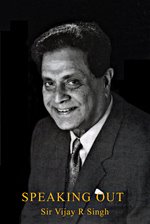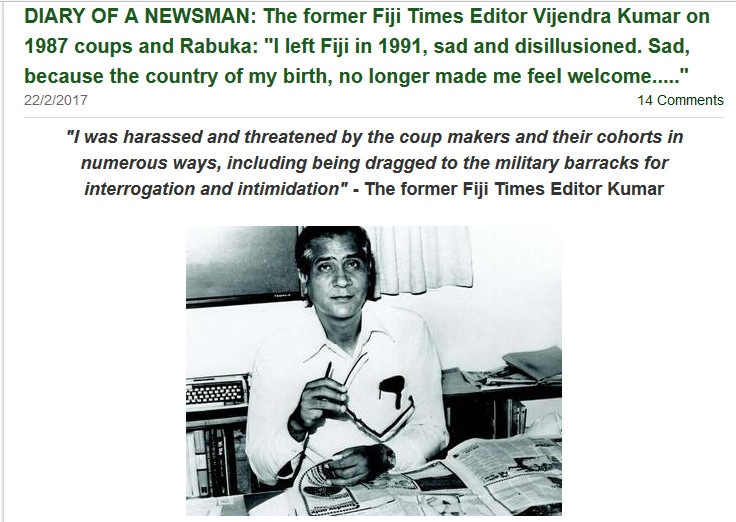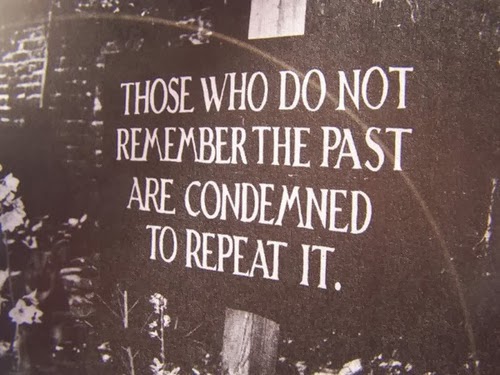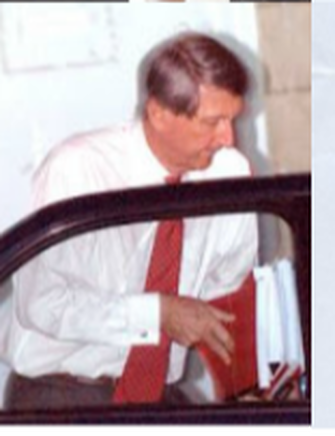The travel bans imposed by Bainimarama-Khaiyum after the 2006 coup is merely a continuation from the 1987 Rabuka coups. The late Sir Vijay Singh was detained after Rabuka's racist coups and his passport seized, prompting him to ask: “What kind of normalcy is [Ratu Sir Penaia Ganilau] thinking about when things like this happen.” The deposed Prime Minister Dr Timoci Bavadra’s spokesman and current Suva lawyer Richard Naidu was arrested and detained on different occasions. He was chased and beaten up by native Fijians, and finally had his Fiji nationality revoked, and ordered to leave the country for New Zealand. Another legal adviser of deposed Prime Minister Bavadra, John Cameron, had his work permit withdrawn after he filed civil suit against dissolution of Parliament, and had also filed claim with the Supreme Court on behalf of a client harassed by the RFMF, seeking a declaration that State of Emergency and 1987 Emergency Regulations were unconstitutional.
The Fiji Times
Wednesday, June 14, 2017
THE Social Democratic Liberal Party has given its assurance that it will review all politically-motivated travel bans if they are elected into Government.
SODELPA leader Sitiveni Rabuka said these would include travel bans on citizens and non-citizens. Mr Rabuka said former citizens such as Professor Brij Lal and his wife Dr Padma Narsey Lal, newspaper executives Russell Hunter, Evan Hannah, former president of the Court of Appeal Justice Gordon Ward, and others had been labelled as "prohibited immigrants" on the grounds of being threats to national security.
But he said SODELPA would review all travel bans and lift them if irrelevant consideration or reasoning was applied to justify the bans.
He was speaking as SODELPA stalwart Usaia Pita Waqatairewa struggled to remove a ban on him enforced by the Immigration Department.
"These bans have no place in a free and democratic Fiji and SODELPA will remove them," Mr Rabuka said.
Mr Rabuka said Mr Waqatairewa faced difficulties when entering and leaving the country and was handed a letter saying he had an "Adverse record or Travel Restrictions".
"Life is lived on rumours now. A lot of people are scared even to talk about this [1987] coup, because there are a lot of informers around. He [Rabuka] seems personable, gentle and reasonable to meet. But he changes his mind according to who he talks to. That is why we have had all these inconsistencies in his stand. He's unable to make up his own mind" - The then Fiji Times editor Vijendra Kumar, 10 October 1987
"The [Rabuka] soldiers are here", screamed a Fiji Times reporter. "They were hyped up with guns drawn, they grabbed reporters, smashed telephones on the floor and ordered everyone out of office," the former Fiji Times editor Vijendra Kumar; like the Khaiyums, Rabuka had turned Radio Fiji into a propaganda machine - to sing to his "glorious coups"
SODELPA vows to repeal the travel ban against Justice Gordon Ward, the former President of the Fiji Court of Appeal. What role had Ward played, leading to his departure from Fiji? VICTOR LAL had written the following Opinion Piece on Ward, an old friend of his from the 1980s, in
The Fiji Sun in June 2007:
"It seems that Justice Ward has jumped the legal gun even before the test cases have come before the High Court and the Fiji Court of Appeal. The words of the great English judge Lord Denning seems to have deserted him: “For all judges on extra judicial issues, silence is the best option.” It would be interesting to see if Justice Gordon Ward resigns as president of the Fiji Court of Appeal. It will be rank hypocrisy if he did not. He is after all presiding over the Fiji Court of Appeal and not over LAWASIA in Commodore Frank Bainimarama’s post-coup Fiji."
By VICTOR LAL
The Fiji Sun
June 2007
The Interim Attorney General Aiyaz Sayed-Khaiyum has called on the President of the Fiji Court of Appeal, Justice Gordon Ward, to resign. In a statement Mr Khaiyum claimed that Justice Ward supported Suva lawyer Graham Leung of Howards, and wrote a letter to LAWASIA questioning as to why its president Mah Weng Kwai, had taken the post of commissioner on at the Fiji Independent Commission Against Corruption.
According to Mr Khaiyum, on May 30, Justice Ward wrote that the events of December 5 was a ‘coup”, that our “President has no power to make laws” and consequently made “judgments about FICAC”. Mr Khaiyum said Justice Ward wrote to LAWASIA on the letterhead of the Court of Appeal questioning as to why Mah had taken the position. Mr Khaiyum did not elaborate on the contents of the letter.
What did Justice Ward write to LAWASIA? A signed copy of Justice Ward’s letter obtained by me confirms Mr Khaiyum’s contention. The letter, written on the Fiji Court of Appeal letterhead, was written on 30 May 2007, and addressed to the Secretary General, LAWASIA, GPO Box 980, Brisbane, Queensland, Australia. The letter was sent by facsimile (No: 0061 7 3222 5850) and addressed to one Ms Neville. Justice Ward wrote in his capacity as President of the Fiji Court of Appeal, and signed it. He also sent a copy to Mr Mah.
He began by claiming that, “The appointment of the President of Lawasia as Commissioner of the Fiji Independent Commission Corruption established by the interim government leaves me with no alternative but to resign my membership of Lawasia”. Justice Ward said he first became a member of LAWASIA some years ago. He supported its consistent promotion of human rights and the rule of law. Justice Ward said he admired the principled stand it was willing to take when the judiciary or legal profession were under attack anywhere in the region. Following the coup in Fiji last December, the same stance was adopted.
Justice Ward asserted: “We were encouraged here to read that Lawasia had strongly condemned the actions of the military in seizing executive power, effectively at gunpoint. It correctly described it as a gross assault on the rule of law, unacceptable in a democratic country. That view was also taken by similar bodies in Fiji and around the world. Lawasia was later reported as having similarly condemned the forced removal of the Chief Justice by military officers. We were further heartened when Lawasia announced it was sending a fact finding mission to Fiji to be led by Mah Weng Kwai.”
But Justice Gordon expresses disappointment with LAWASIA for publishing a large photograph of Commodore Frank Bainimarama and also for effusively praising the current Interim Attorney-General Khaiyum. He informed LAWASIA: “Unfortunately, the initial report after the visit, published in the April edition of Lawasia Update, was insensitive enough to start with a large photograph of the members of the mission with Bainimarama, the man who had headed the removal of the elected Government by the military and who, once he was 'appointed' interim prime minister, retained command of the military, thus ensuring an effective military government, and directed the forced removal of the Chief Justice The report then gives effusive thanks to the interim attorney general for his generosity with his time and for the briefing by him on the controversial commission against corruption which the report describes as a "key focus" of the interim government and a "vital process in restoring good governance in Fiji.”.
He informed LAWASIA that he knew from reported comments by Mr Mah himself that his (Mr Mah’s) appointment was first suggested by Mr Khaiyum during that visit when Mr Mah was heading an ostensibly independent fact finding mission. But according to Justice Ward, “Such an approach was inappropriate and suggests that Mr Mah had already taken a view that there was legitimacy in the interim military government despite the repeated claim in the subsequent final report that it deliberately avoided making any such decision”.
Justice Ward also pointed out that Mr Mah is no doubt aware that, under the Fiji Constitution, lawmaking power is vested in Parliament. The President has no power to make laws but Mr Mah’s appointment had been made under such a claimed power.
Justice Ward than proceeds to comment on Captain Esala Teleni, suspended Chief Justice Daniel Fatiaki, and the removal of high ranking civil servants etc: “No doubt he (Mr Mah) was advised that his deputy commissioner in the independent commission is the second in command of the military. Far from “restoring” good governance in Fiji, the interim government has repeatedly used vague and unspecified allegations of corruption as its reason to arbitrarily remove high-ranking civil servants and prominent leaders – frequently in disregard of lawful procedures. The removal of the Chief Justice by the military officers and the absence of any specific charges more than four months later is one of many examples.”
He said he had no doubt that Mr Mah was a highly regarded lawyer in the Asia Pacific region. Justice Ward added that he was sure Mr Mah had the necessary qualifications for the position he had accepted in Fiji. He intended no criticism of Mr Mah personally but the appointment, he claimed, had been well publicized in the newspapers and on radio and television. Justice Ward added: “Whilst reference has been made to his reputation and undoubted experiences, the principal emphasis has been his presidency of LawAsia as suggesting an indication of acceptance in the international community of the validity of the military’s claimed reason for removing Fiji’s elected government.”
Justice Ward than announced that he was resigning from LAWASIA: “This has made it impossible to regard his appointment as a personal matter. I consider his acceptance of it is totally inconsistent with his role as the public face of LawAsia. I regret to say it as having compromised LawAsia’s hitherto deserved reputation to such an extent that I fear my continued membership may be seen as an acquiescence in such a compromise.”
He said he was attending the Hong Kong conference in his capacity as Chief Justice of Tuvalu. “I understand that attendance at the Chief Justice’' conference does not depend on membership of the association. However, I intend still to attend some parts of the principal conference despite my resignation. I shall take no part in Lawasia after that”.
Justice Gordon Ward’s letter once again raises the issue of revolution and the position of the judiciary. While Commodore Bainimarama invoked the Doctrine of Necessity, the judges could defend themselves on the necessity ground of jurisdiction. There are occasions in extreme circumstances such as revolution where it is necessary in the interest of public order for a court, sitting to determine the status of a revolutionary government to override claims that it lacks jurisdiction.
This was the approach taken by MacDonald JA and Fieldhouse AJA in the Southern Rhodesian cases of Madzimbamuto in the Appellate Division and Beadle CJ in Ndhlovu. MacDonald said: “The municipal courts, unlike a foreign government, cannot wait upon events. The function of courts of law within a territory is to maintain law and order and to avoid by every possible means anarchy, chaos, or uncertainty and this is an urgent task.”
Fieldsend AJA found that the court could not sit to determine whether the constitution by which it was created had disappeared, and that there could be no “halfway house” between deriving jurisdiction from the 1961 and 1965 Rhodesian Constitutions. Nevertheless, he came to the conclusion that on the grounds of necessity, the court should give effect to certain of the acts of the Ian Smith Government which had declared Unilateral Declaration of Independence from Great Britain. Beadle CJ in Ndhlovu thought that something other than legality required the courts to continue to sit, and that was on “protecting the fabric of society”.
He did not think that to carry on was to be “disloyal” to the 1961 Constitution and thought rather that the judges had been “overtaken by events”. He said the judges should ask the following question: “Is it better to remain and carry on with the peaceful task of protecting the fabric of society and maintaining law and order, or is it better to adhere to the old 1961 Constitution and go along with it.”
He was referring to the necessity ground of jurisdiction. In revolutionary situations the courts must carry on, to “protect the fabric of society”, instead of quietly attempting to bring down the revolutionary government.
It seems that Justice Ward has jumped the legal gun even before the test cases have come before the High Court and the Fiji Court of Appeal. The words of the great English judge Lord Denning seems to have deserted him:
“For all judges on extra judicial issues, silence is the best option.”
It would be interesting to see if Justice Gordon Ward resigns as president of the Fiji Court of Appeal.
It will be rank hypocrisy if he did not. He is after all presiding over the Fiji Court of Appeal and not over LAWASIA in Commodore Frank Bainimarama’s post-coup Fiji.





